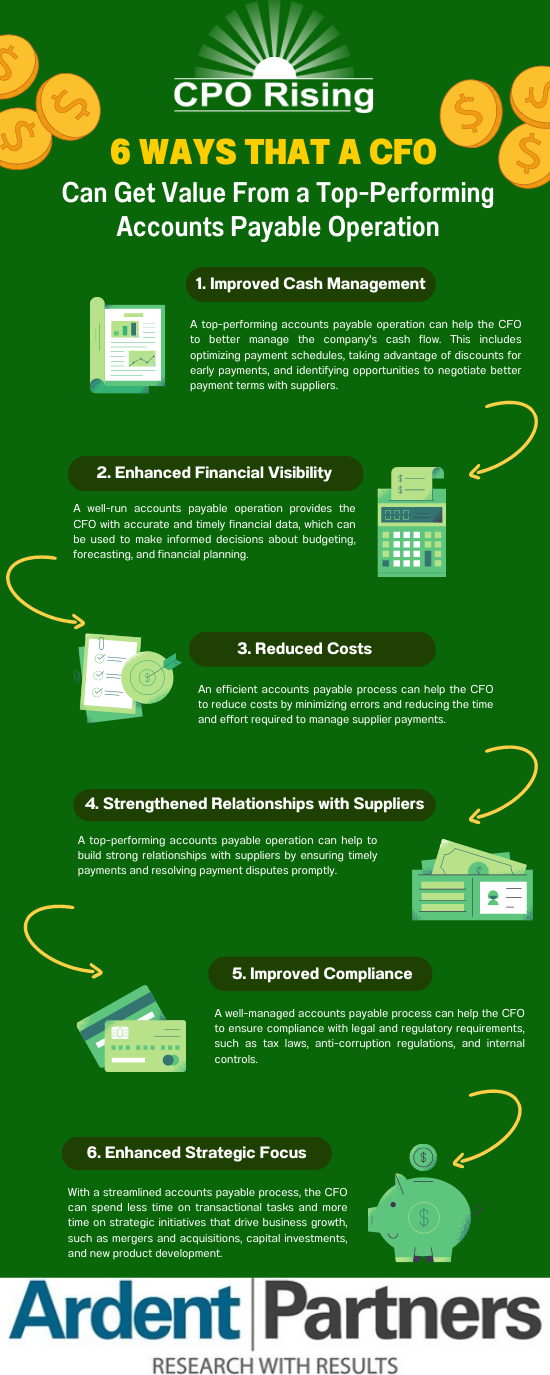Fridays (in 2023) means that it’s time for another CPO Rising Listicle. Each list will include a variety of procurement tips, trends, insights, research, lists, strategies, and/or recommendations designed to help procurement teams improve operations. We’ll also include a summary graphic for you to share with your team.
In today’s turbulent business and economic environment, chief financial officers face some of the most significant challenges in decades, particularly in accounts payable (AP). With the primary goals to maintain cash flow and strengthen supplier relationships, AP is a critical process for both financial and supply continuity. However, many CFOs remain plagued by manual processes that not only slow invoice processing but also lead to invoice data inaccuracies and potential overpayment. Such inefficiencies and errors leave the enterprise and CFO with a compromised balance sheet.
Instead, CFOs managing with top-performing AP operations are focused on automation and standardization in the handling and processing of invoices to avoid the pitfalls of manual transactions.
Here are Six Ways That a CFO Can Get Value From a Top-Performing Accounts Payable Operation:
- Improved Cash Management: A top-performing accounts payable operation can help the CFO to better manage the company’s cash flow. This includes optimizing payment schedules, taking advantage of discounts for early payments, and identifying opportunities to negotiate better payment terms with suppliers.
- Enhanced Financial Visibility: A well-run accounts payable operation provides the CFO with accurate and timely financial data, which can be used to make informed decisions about budgeting, forecasting, and financial planning.
- Reduced Costs: An efficient accounts payable process can help the CFO to reduce costs by minimizing errors and reducing the time and effort required to manage supplier payments.
- Strengthened Relationships with Suppliers: A top-performing accounts payable operation can help to build strong relationships with suppliers by ensuring timely payments and resolving payment disputes promptly.
- Improved Compliance: A well-managed accounts payable process can help the CFO to ensure compliance with legal and regulatory requirements, such as tax laws, anti-corruption regulations, and internal controls.
- Enhanced Strategic Focus: With a streamlined accounts payable process, the CFO can spend less time on transactional tasks and more time on strategic initiatives that drive business growth, such as mergers and acquisitions, capital investments, and new product development.

In addition, CFOs can leverage AP forecasting models to determine predicted payment patterns. Similarly, supplier relationships also benefit with timely payments and assurance that suppliers are compliant with legal and regulatory requirements.
RELATED RESEARCH
The New ‘Normal’ Workspace in Accounts Payable and P2P
Best-in-Class Accounts Payable Performance
Paper or Electronic Invoices and B2B Payments?
Tagged in: Accounts Payable, AP Automation, AP Metrics, CFO, Chief Procurement Officer, CPO, CPO Rising Listicle, Procurement, Supplier Relationship Management









